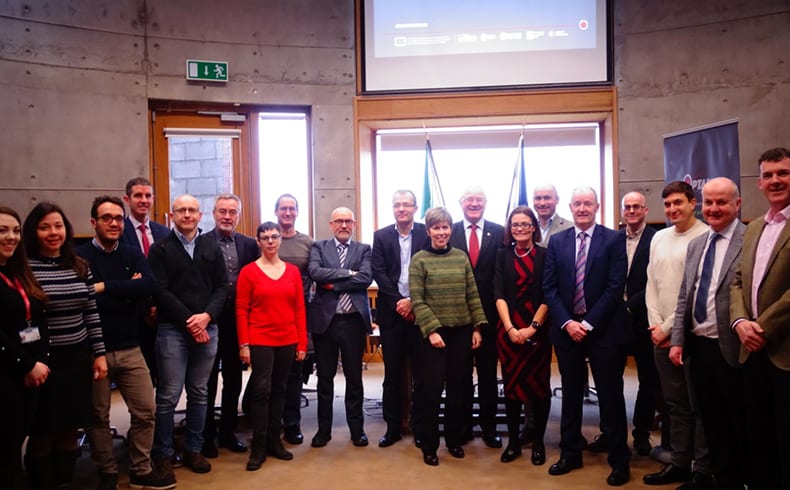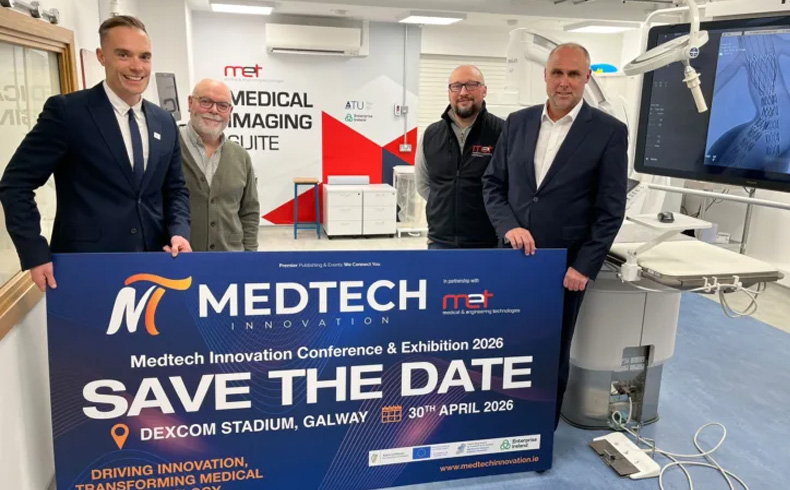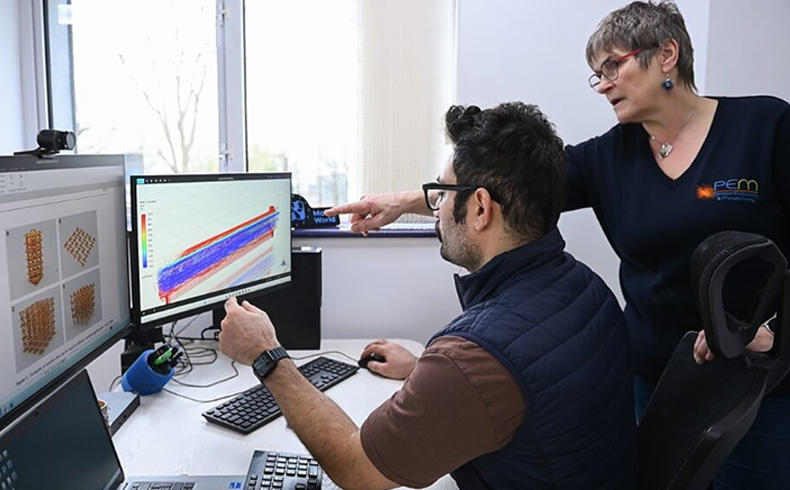The Centre for Advanced Photonics and Process Analysis (CAPPA) at Cork Institute of Technology has today launched their new EU-funded OPTAPHI project worth over €3.8 million. OPTAPHI is a European Double Doctorate Programme on “Optical sensing using advanced photo–induced effects”, and involves five partner institutions across Europe. The network was official launched by CIT President, Dr. Barry O’Connor, at the project’s kick-off meeting held in CIT on 21st January. The project is coordinated by Dr. Liam O’Faolain (William Whelan-Curtin) and brings over €1M funding to CIT; this is the largest amount in a single EU H2020 project to be awarded to the institute to date, and brings to over €10 million the total amount of funding secured by the CAPPA research centre in the past 5 years.
The OPTAPHI project is a European joint doctorate programme funded under the EU’s Horizon 2020 research programme, as part of the Marie Skłodowska-Curie Actions. The consortium includes Cork Institute of Technology as coordinator, Politecnico di Bari (Italy), University of Bari Aldo Moro (Italy), Vienna University of Technology (Austria) and University of Montpellier (France). Through the project, 14 early stage researchers will undertake an innovative doctoral programme, which includes studying at two of the partner institutes, and will be awarded double Ph.D. degrees from both their co-hosts. The training from leading research groups will be complemented by secondment opportunities offered by ten associated Partner Organisations, together with network-wide training events such as workshops and a summer school.
A total of eight Ph.D. students will be registered at CIT, and the project represents four new partnerships for formal double degree awards with European academic institutions. In Horizon 2020 to date, OPTAPHI is one of only four EJD networks coordinated by an Irish institute, within a funding scheme which is one of the most highly competitive in the Framework Programme.
The photonics sector underpins all aspects of modern society, including optical telecommunications, biophotonics, medical devices and materials processing. In Europe, sensing is the largest photonics-based application. The OPTAPHI students will develop advanced optical sensors focusing on applications in the areas of Environmental Sensing, Agri-Food Analysis and Industrial Process Monitoring. OPTAPHI will demonstrate compact sensors that can be used in unmanned aerial vehicles for environment sensing, as low cost sensors for food monitoring and in industrial Process Analytical Technology.
“We are delighted to have received funding for the OPTAPHI project which will enable us to work with eight new students and develop advanced optical sensors focusing on applications in a variety of areas” says Dr Liam O’ Faolain, OPTAPHI project coordinator. Speaking at the official launch of the OPTAPHI project on Tuesday 21 of January, CIT President Dr Barry O’ Connor said: “ The OPTAPHI project offers a great platform for the five partners institutions- two from Bari in Italy, one each from Vienna, Austria, Montpellier, France and CIT as the coordinating partner – to work together on advancing photonics research in the EU. There will be great potential within this consortium to form the nucleus of a European University, a project strongly supported by the EU Commission and by many governments across Europe aimed at enhancing European cohesion in Higher Education and Research.”
Applications for the OPTAPHI Ph.D. positions will open shortly. You can find more information on the OPTAPHI website: www.optaphi.eu
This post was originally published on the CAPPA website.
To find out more about CAPPA, check out their page and follow them on Twitter and LinkedIn for all the latest news and events!



